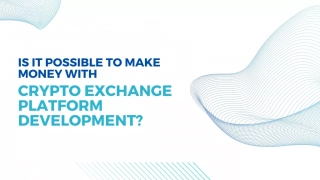
Regulatory Aspects of Two-Sided Markets and Disruptive Technologies
Explore the regulatory aspects of two-sided markets and disruptive technologies, addressing economic regulation, network effects, taxonomies, characteristics, and key regulatory questions. Learn about the challenges and responses faced by digital platforms in this evolving landscape.
Download Presentation

Please find below an Image/Link to download the presentation.
The content on the website is provided AS IS for your information and personal use only. It may not be sold, licensed, or shared on other websites without obtaining consent from the author. If you encounter any issues during the download, it is possible that the publisher has removed the file from their server.
You are allowed to download the files provided on this website for personal or commercial use, subject to the condition that they are used lawfully. All files are the property of their respective owners.
The content on the website is provided AS IS for your information and personal use only. It may not be sold, licensed, or shared on other websites without obtaining consent from the author.
E N D
Presentation Transcript
Regulatory Aspects of Two-Sided Markets Disruptive Technologies and Economic Regulation Dr. V. Sridhar International Institute of Information Technology Bangalore (IIIT-B)
Two-Sided Market Platforms (2SMPs) Cab Seekers Cab Drivers Product/ Service providers Information seekers Job seekers Job Providers Same-Side Network Effect Two-Sided IT based Market Platform Seller User Set 2 User Set 1 Buyer Patients Cross-Side Network Effect Doctors Publishers Readers Rochet & Tirole, 2004
Taxonomy of 2SMPs Directory Services Disintermediation Search Cost Regulatory Arbitrage Economic Value- Add Aggregator Platforms Liability E-Market Places In emerging markets, many market verticals are relatively unorganized compared to developed markets; there is often information asymmetry leading to high search costs and arbitrage opportunities; 2SMPs reduce information asymmetry; improves efficiency of utilization of resources; disintermediate and minimize rent outflow; improves consumer and producer surplus
Characteristics of 2SMPs Typically 2SPs are not monopolies or near monopolies However, competition is minimal Multi-homing is typical Users adopt more than one platform Typically platform differentiation is minimal Attaining critical mass is necessary for sustainability and building network effects Asymmetric pricing is common The money side and subsidy side Which side to subsidize and by how much? Platforms reduce information asymmetry Hence collect lot of user information to provide personalized services Data Protection and Privacy issues abound
Regulatory Questions Increasing economies of scale due to network effects: Predatory pricing to attain critical mass Effect: reducing competition Regulatory response: time limit discounting Horizontal and vertical integration Effect: reducing competition Regulatory response: mergers and acquisitions anti-trust regulation Homing: What if platform offers exclusive contract to sellers, setting the price slightly below that of competitors? Effect: reducing competition Regulatory response: how serious is user lock-in? Use of information collected for un-intended use Effect: user privacy is violated Regulatory response: mandatory user consent; user rights on the collected information First Mover Advantage Effect: Platform envelopment -> might lead to creating a high entry barrier for competitors Regulatory response: Significant Market Power assessment and anti-trust regulation Role of digital platforms Effect: Technology only and hence disowns responsibility and liability Regulatory response: Mandatory compliance and level playing field with incumbents?
Regulatory Guidance Regulatory rules for 2SMPs to be different compared to the traditional brick-and-mortar business Mandatory compliance Cabs should run on LPG -> environmental protection Background check of housemaids -> improve security Content editing in mobile news -> social harmony Background verification of Doctors -> patient wellness Food safety check -> protect health of foodies Other market regulatory rules Fare regulation -> reduces market efficiency Additional taxation -> increases platform costs FDI regulation-> reduces overseas investment Users and platforms considered as stakeholders in the trusted Self Regulatory Organization (SRO) with Government Omnibus oversight??






















